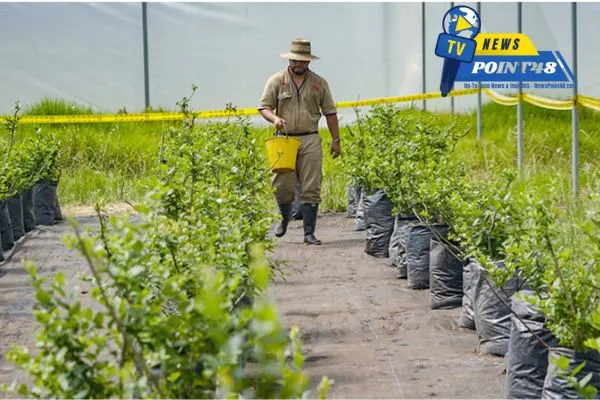
Canada has announced its intention to commit CAD$250,000 to international food safety and animal and plant health standards for global food security and environmental sustainability. This should be seen as a testament to Canada’s engagement in improving international health regulations and making food systems safe and sustainable. The would-be funding, aimed at international organizations and initiatives, is intended to combat many of the most pressing global crises — including public health, environmental degradation, and agricultural practices.
Here, I investigate the implications of the Canadian pledge, how the funds will be utilized, and potential implications for global food security, plant health, and animal welfare.
The Scale of Canadian Contribution
The CAD 250,000 commitment is earmarked to support international organizations that safeguard and enhance inter alia food safety, animal welfare, and plant health standards. These include the World Health Organization (WHO), the World Organisation for Animal Health (WOAH), and the International Plant Protection Convention (IPPC). These entities create international norms to protect the safety and health of foodstuffs across the world.
Holistic measures aimed at improved regulation, monitoring, and adherence to international health standards will be further supported by the funds. Whether through training programs in developing countries where regulations around food production and safety are more lax or under-resourced.
Improving The Quality Of Food Safety

Part of what Canada committed to is enhanced global capacity in food safety. The safety of all food products for consumption needs to be monitored at the right place in the supply chain from production to consumption. Millions of people are exposed to foodborne diseases due to weak regulations in several emerging regions, and instances of contamination.
The funding committed by Canada will enable these countries to beef up their food safety systems through various capacity-building initiatives. These include training programs, guidance on regulations, and the use of technology for food safety inspections. To reduce the risks associated with unsafe adulterated food and to help provide access to safe nutritious food for populations globally, Canada is investing in these areas.
Globalization and the increase in trade have changed to face food safety as a global question. Foodstuffs in one case or a particular region that have become tainted can trigger international market problems, demonstrating the need for globally applied.
Building Animal Health Systems
Canada’s subsequent pledge is $450 million to respond to addressing animal health. Livestock-the most animals on a farm- well as production and animal of impact economic large have can diseases These scales. Avian flu or African swine fever prior outbreaks have adversely affected the global food system and cost us a fortune.
The funding will improve animal disease prevention, surveillance, and control programs. The funds will go to research on new diseases designed to help countries act faster and more effectively in the event of an outbreak. Moreover, the funds will be directed toward training veterinarians and others who work with animal health, particularly in developing regions where resources can be scarce.
The initiative will also focus on One Health, a collaborative, multi-sectorial, and trans-disciplinary approach working at the local, regional national, and global levels; to achieve optimal health outcomes by recognizing the interconnection between people, animals, plants, and their shared environment. It not only secures our livestock and poultry supplies but also public health as zoonotic diseases transmitted from animals to humans remain a top priority.
Advancing Sustainable Plant Health Practices

It is important to plant health and has repercussions on food security, biodiversity, and environmental sustainability. If an invasive species, pest, or plant disease severely reduces farm production, the result is less food and a decline in economic health for the affected region. Canada’s donation will advance the efforts of the International Plant Protection Convention (IPPC) to encourage sustainable plant health management.
This will support guidance to regulate pests, and plant diseases, whilst promoting sustainable agriculture practices that conserve and protect plant health. The IPCC also takes the lead in harmonizing plant health standards across international borders, and hence grains, fruits, and vegetables are traded free from pests or diseases for food safety.
Canada is backing that effort by encouraging integrated pest management systems to curb the use of environmentally damaging pesticides. Many of these are used to combat a range of diseases and pests that, with climate change increasing both their frequency and severity, often require reassessment in order to protect plant health and conserve our biodiversity.
Act on Climate — To Secure Resilience, Adaptation, and Global Food Security
Canada’s commitment is part of a larger plan to help food systems around the world cope with the impacts of climate change. With the rising of global temperatures, so comes increased pressure on the agricultural sector from things like extreme weather events, changing growing seasons, and pest and disease pressures. With regions in the developing world where food production is not very technologically advanced being most at risk of loss due to climate change.
As a result of working to build stronger food, animal, and plant health norms, Canada is helping to develop resilient agricultural systems that are better equipped to minimize the impacts of climate change. The funding will go towards climate-smart agriculture practices that seek to boost productivity while lowering greenhouse gas emissions and improving the sustainability of food systems.
Leadership in Global Health and Trade from Canada
Canada has always been a prime mover in promoting global health standards and sustainable development. In signing this pledge, the country is reaffirming its commitment to continued active participation in international trade and development — especially in agriculture. Helps to ensure global compliance with standards related to food, animal, and plant health — contributing to the support of fair and safe trade practices.
Canada is one of the top exporters of agricultural products so it is no surprise that they place a great emphasis on delivering only the highest health standards, especially for food safety and trade. Better-regulated countries that are taking steps toward sustainability of their agriculture, and thus have better global market access, will benefit from this pledge equally as much as Canada and the health of the world’s global economy.
Implications Worldwide, Future Directions

Veterinary services Private sector veterinary laboratories, diagnostic companies, and universities Tariffed testing of regulatory samples Challenges can arise when private or university sectors have special interests (e.g. different test methods) SC is recognized at the international level but only possible through ongoing funding Canada contribution $250,000 Small part of the mechanism and global cost for food/animal/plant health Through its support for international organizations, Canada is also helping to set global standards that contribute both to the health of people in developing countries and to the broader interests of the entire international community.
Canada has the necessary leadership and resources to help create healthier trade standards for health. International food security and sustainability challenges are addressed with Canada’s pledge of CAD250,000 to support standards for global food, animal, and plant health Through its contributions to the WHO, OIE and IPPC, Canada is working hard to make sure the health of animals and plants across the globe are properly maintained, protect global food security and sustainability practices for plant health.
